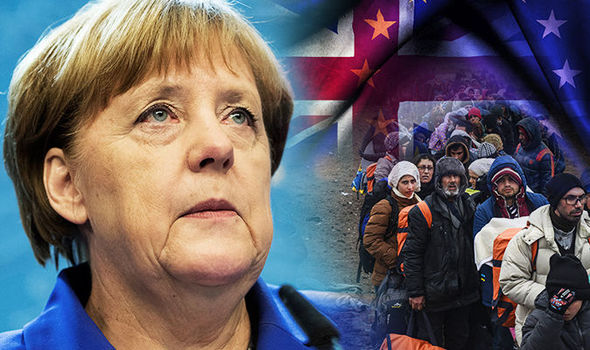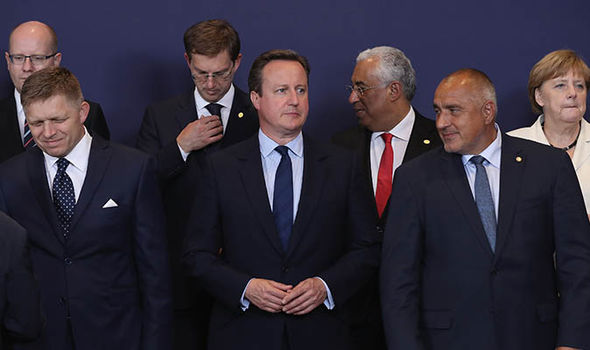Why the surprise Angela? Self-serving Germany COULD have stopped Brexit

ANGELA Merkel’s government could have prevented Brexit if they had put the European Union above its own self-interest, it has been claimed.
Economists have echoed David Cameron’s call to Germany to take its share of responsibility for Britain’s final decision at the polls on June 23.
The Prime Minister told EU ministers Britons would have voted Remain had they given him an ‘emergency break’ on migration.
French officials also said Mr Cameron could have won last week’s referendum had EU leaders granted him an “emergency brake” on migration which, he said, was “a driving factor” behind the Leave vote.
And now top economists have backed Cameron, claiming Germany’s insistance on free movement and labour is because it needs it to feed its own giant economy.
The country, which has the biggest GDP in the Union, was delivered a warning in 2014 that within the next 15 years, half of all German workers would become pensioners, in a study by the Bertelsmann Institute.
Without immigrants, the study found Germany’s labour pool is likely to shrink from its current 45million to 29m people (or 36 per cent) by 2050.
Jörg Dräger, a Bertelsmann Institute board member, said Germany must look for workers outside of the EU
He said: “We must take the measures now that make Germany an attractive destination for non-EU citizens.”
But that claim was bluntly contested by Jean-Claude Juncker, European Commission president.
Germany’s actions over the last year have been heavily criticised by those who voted in favour of a Brexit, and some who wished to Remain.
The country is widely seen as having most power and political sway within the EU, often opting to push through rules which suit its own monster economy.
Mark Littlewood, the Director General of the Institute of Economic Affairs, argued Germany "ripped up the rule book" on migration in 2015 when Angela Merkel vowed to give a home to Syrian refugees, prompting huge migration towards the main bloc.
The Union panicked, Schengen practically collapsed and leaders seemed to have no plan.
Had this crisis been better handled by those who helped create it, Mr Littlewood argues Britain may have in fact Remained in the Union.
He said: “They ripped up European policy and said we will let one million people in as soon as it suited Germany. In fact they picked up the rule book and threw it out of the window.
“The Germans made a decision in their own economic interests without consideration or consultation of the other 27, soon to be 26, states.
“The problem with the Schengen zone is once you accept X number of people into Germany, there’s nothing to stop them relocating to Austria or elsewhere. The present agreement does not allow you to stop people moving on.
“In fact, by Germany saying 'come in' they dictated migration policy for every other member state. I’m not saying that everyone heading for Germany wanted to move on, but that the decision was taken out of the hands of other member states.
“I think you can make a case that those issues were potentially decisive. The fact that the EU had no co-ordinated or sensible approach to the refugee crisis — that could well have made a two per cent swing here in the UK.”
Another problem with Germany’s insistence on creating increased inward migration for the nation is the phenomena of "brain drains" in poorer countries.
Top economists have argued by calling for young, intelligent members of society to move abroad a country is left without its brightest talent, while the already thriving west further improves.
Mr Littlewood said it begs the question of how capitals like Bucharest will ever rival Berlin or London.
He said: “How does a country thrive when its brightest young talent is being enticed to other countries.
“As soon as they are able they move away — it’s a no brainer.”
And the GDP in such countries remains stale.
Политика конфиденциальности | Правила пользования сайтом











